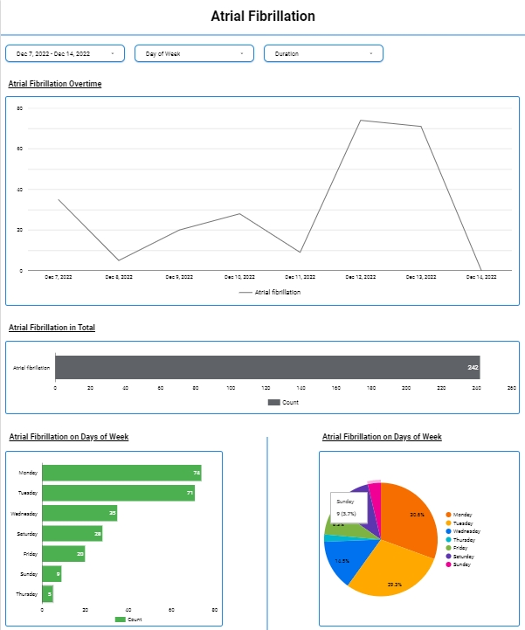Thought I would give an update as to my personal study of my AF.
For those that have not been following my posts, I consciously decided not to take medications for my AF so I could study the beast by trying alternatives to medications.
One of my earliest thoughts was to set up a citizen science website about AF for gathering data via polls so all members could contribute experiences to compare what works and what does not work.
Although setting up a website to do this was not too difficult, I have decided instead to develop a concept/tool for myself in analyzing my AF that any AF sufferer could also use.
I have Vagal AF (99.5% of the time it occurs when in I am in bed), I use a wearable that I sleep with and it records 17 different heart problems.
The problem with my wearable and perhaps with most/all of these devices is that the data is for a single period and you can't interact with the data eg. add 'what was eaten or drunk that night' or exercise etc. And then look at the data historically to work out triggers etc.
I have about 65 nightly recordings so I have teamed up with a data analyst to crunch the numbers and create a tool to display graphs of recordings over time plus notes (foods eaten etc).
I believe that we as sufferers of AF have hidden answers that the medical profession cannot find as they are not studying us. Sure, they do studies but they are not really for us.
What use is a single 24 Holter monitor recording and a ten minute appointment with a cardiologist to diagnose that you have AF and then be medicated? That is all they can afford to do with us. (Sorry, that was my rant!)
Below is a screenshot of the dashboard. This image shows just AF and only over the last week, it could show any time span along with daily notes.
The 242 episodes of AF are 242 minutes of AF in about 3,300 minutes of sleep over the last week. Some of those 242 minutes are not full minutes of Afib either. The week before was 140 minutes of AF over 7 nights and 3 weeks ago it was only 78 minutes of AF.
You can see the days are also shown, some nights very little AF and others a lot of AF.
I can make this software available to anyone reading this that have a wearable that records events, all that is needed is a Gmail account.
Ideally a few people that are as keen as I am come on board early so we can together work with my data analyst to improve the system.
I have an appointment with a new EP in about 3 weeks time and will be presenting my historical data in a format that is very easy to understand.
Keen to hear peoples thoughts about this new tool.
